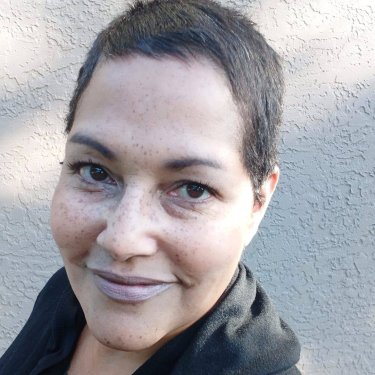Angela M. - Diagnosed at age 40

My journey with Systemic Lupus Erythematosus (SLE) and Sjogren’s Syndrome began over 20 years ago including the eight years to receive a definitive diagnosis. Initially, I was diagnosed with Sjogren’s Syndrome, followed by an SLE diagnosis six months later. My early symptoms included extreme exhaustion, frequent flu-like feelings, dehydration, brain fog, increased headaches, breakthrough seizures, joint pain, swelling, and unexplained rashes on my face and neck.
Currently, I experience headaches, brain fog, extreme tiredness, fluctuating pain, and swelling in my extremities. My lupus has progressed to involve multiple organs, impacting my brain, central nervous system, lungs, kidneys, and bladder. These symptoms are further complicated by a traumatic brain injury (TBI) I sustained earlier in life.
Lupus has transformed my daily life into "good days," where I can engage in chosen activities, and "lupus days," where I must rest and perform the bare minimum. Planning my future has become a short-term endeavor, focusing on manageable goals to reduce stress for myself and my family.
Managing my lupus involves:
• Finding a rheumatologist who specializes in lupus
• Educating myself and my family about the condition
• Connecting with local lupus support groups
• Attending lupus exercise groups
As a lupus advocate from 2014 to 2022, I engaged with the Lupus Foundation of America (LFA) and LFA – Southeast FL. I maintained a social media presence, shared lupus information and resources for local support. I participated in virtual walks and webinars, raised awareness during Lupus Awareness Month, and obtained official proclamations from my city’s Mayor’s Office. After World Lupus Day in 2022, I took a break from advocacy due to health complications from my lupus and brain injuries.
During 2019, I faced another life-altering event: a right intracranial brain hemorrhage. Initially thought to be a lupus flare affecting my brain, further investigation revealed that one of the medications prescribed for my autoimmune symptoms caused the hemorrhage beneath my original TBI site.
Despite these challenges, what gives me hope is the continuous research being conducted on lupus. There are now more resources, information, and medications available than there were 20 years ago, and the strides toward finding a cure give me immense hope. No one should have to suffer from this disease, and I am optimistic about future advancements in lupus research and treatment.
Lupus and TBI do not define who I am; they have made me more resilient and hopeful.



